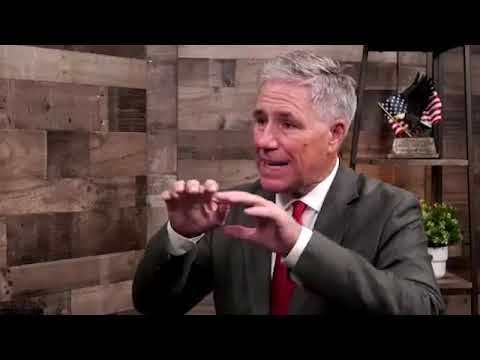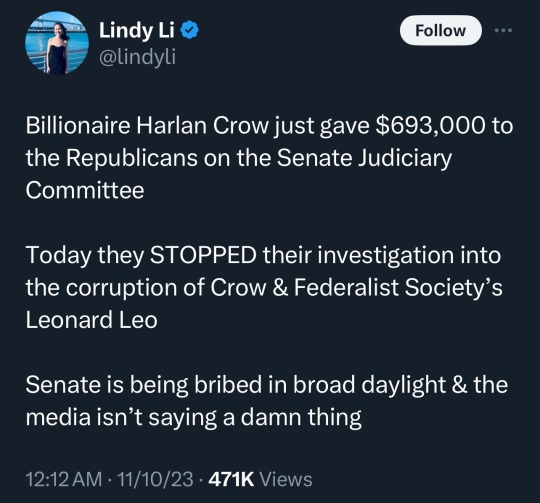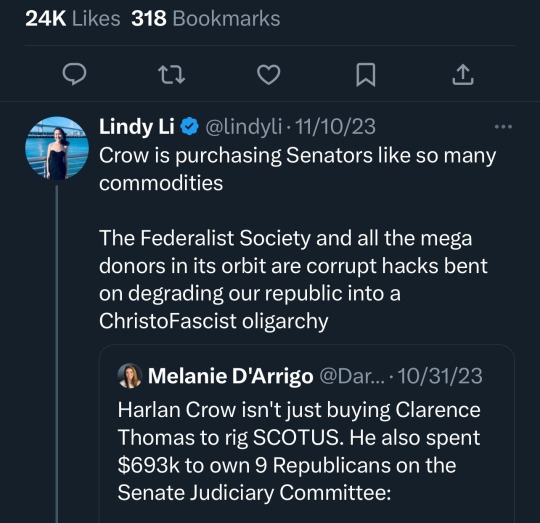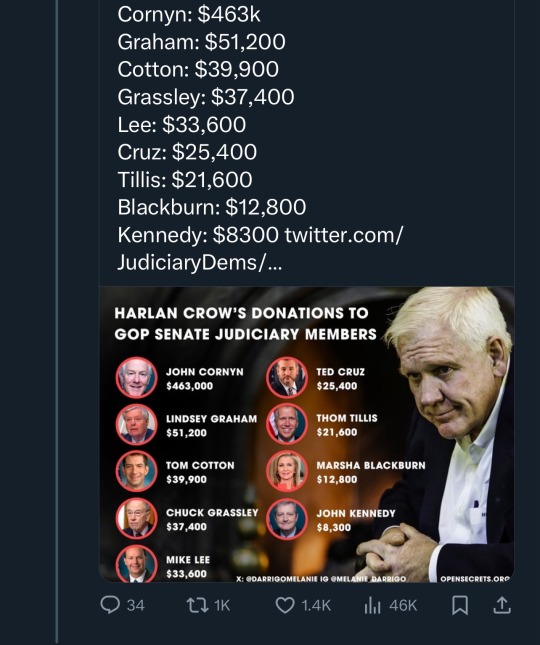#federalists
Explore tagged Tumblr posts
Photo

Articles of Confederation
The Articles of Confederation and Perpetual Union was the first frame of government for the United States of America, establishing a weak federal government to protect the sovereignty of the states. Adopted by Congress in 1777, the Articles were effective from 1 March 1781 until 4 March 1789, when they were replaced by the current United States Constitution.
Under the Articles of Confederation, the central government (i.e. Congress) was a unicameral legislative assembly, comprised of delegates from the thirteen states. It was chaired by a President of Congress who, unlike the later office of the President of the United States lacked any executive power. Although Congress had the authority to declare war, make treaties with foreign powers, and resolve disputes between states, in most matters the central government was deliberately kept weak to protect the sovereignty of the states and could make no important decisions without the consent of at least nine states. This led to several problems, stemming from Congress' inability to levy its own taxes as well as its lack of a strong, standing army to provide for the nation's defense. Proponents of a stronger central government, known as Federalists, soon began to call for a revision to the Articles of Confederation. This ultimately led to the Constitutional Convention of 1787, in which the Articles were thrown out and replaced with the United States Constitution, which persists as the frame of the U.S. government to this day.
Drafting & Ratification
By June 1776, the American Revolutionary War had been ongoing for a little over a year. King George III of Great Britain (r. 1760-1820) had recently rejected the Olive Branch Petition, a last-ditch offer of peace sent by the Second Continental Congress, and had declared the Thirteen Colonies to be in a state of open rebellion. To use the words of Thomas Jefferson, the king's response left many Americans feeling as though the "last hope of reconciliation" between crown and colony had been severed, leaving the colonies with no recourse but independence; indeed, Thomas Paine's seminal pamphlet Common Sense warmed many colonists to the idea of independence, something that would have seemed unthinkable even a year before. Radical members of Congress had spent months garnering support for their cause and urging colonial legislatures to prepare for independence. Finally, on 7 June 1776, Richard Henry Lee of Virginia put a motion before Congress that "these United Colonies are, and of right to be, free and independent States…and that all political connection between them and the State of Great Britain is, and ought to be, totally dissolved" (Middlekauff, 331).
As the congressmen prepared to vote on Lee's motion, three committees were set up to begin laying the groundwork for a new nation. The first of these committees, the famous Committee of Five, was charged with the drafting of a Declaration of Independence, while the second committee was tasked with the creation of a 'model treaty' for establishing commercial relations with foreign powers. But it was the third committee that was given arguably the most important job of all: producing a frame of government for the 'perpetual union' that would bind the thirteen colonies together; in other words, they were drafting a constitution. This committee consisted of thirteen delegates, one selected from each colony, and was chaired by John Dickinson of Pennsylvania. It presented its initial draft of the Articles of Confederation to Congress on 12 July 1776, ten days after the vote for independence had passed.
The thirteen framers of the Articles had carefully considered the role that Congress would play in the new confederation. At a time when many Americans despised the British Parliament for its perceived corruption and tyranny, the framers wanted to avoid giving too much power to a central government that might one day become equally oppressive. Instead, they proposed a central government subservient to the individual states, arguing that this system was the best way to protect the liberties of American citizens. After much debate, Congress adopted the Articles of Confederation on 15 November 1777 before sending them off to the states for ratification. Virginia became the first state to ratify the Articles on 16 December 1777. 14 months later, the Articles had been ratified by every state except for Maryland, which was stubbornly holding out. Since the Articles needed the consent of all thirteen states before it could go into effect, the process of creating the confederation ground to a standstill.
Declaration of Independence by Trumbull
John Trumbull (Public Domain)
Maryland, a small state, was wary of the designs of its large and ambitious neighbor, Virginia. Maryland announced that it would not ratify the Articles unless Virginia gave up its claims on western territories, specifically the lands along the Ohio River. Many Virginians were initially indignant, and the stalemate continued for some time; all the while, Congress continued to operate as if the Articles were already in effect, adding to the legitimacy of the document. Finally, Virginia promised to renounce its claims to the Ohio territories. Satisfied with this outcome, Maryland ratified the Articles on 2 February 1781. On 1 March, the Articles formally went into effect, and the Second Continental Congress was rebranded as the Congress of the Confederation.
Continue reading...
36 notes
·
View notes
Text

#donald trump#trump#fuck trump#weird#stupid#maga#federalists#heritage foundation#project 2025#jd vance#Thomas#alito#kavanaugh#amy coney barrett#republican party
9 notes
·
View notes
Text
The Constitution: Convention
After the battlefield victory and the signing of the “Treaty of Paris” in 1783, the American Revolutionary War officially ended. The thirteen colonies were recognized as free and independent states from Great Britain. During the Revolutionary War The second Continental Congress already had the framework for a national government and after the constitutional convention in 1777 the…
#articles of confederation#congress#constitution#delegates#federalists#george washington#government#great compromise#new jersey plan#taxation#treaty of paris#Virgina plan
1 note
·
View note
Text
Outgoing President Joe Biden has gotten himself on the naughty list – and not the good kind of naughty list.
0 notes
Text
It’s well documented, EVEN AT THE TIME, that Federalists sought to accrue greater power for the executive. During their one term, they sought to imprison journalists, wage an undeclared war (against a former ally), expel foreigners (the US’s first law restricting immigration came about under them), and generally behave in an unaccountable manner. Fortunately, John Adams only lasted one term.
However, what is one of the main groups trying to reshape the judiciary? Isn’t it the Federalist Society?
Further, the Federalist Papers are promoted by political scientists and historians. The Anti-Federalist papers get ignored, and didn’t get collected until 1981! In popular culture, John Adams and Alexander Hamilton got adoring biographies and pop culture hero status.


Six judges invented the US monarchy. Just made the shit up.
Interesting how the public has no access to the Supreme Court. You can't see any case. Yet billionaires can bribe the justices for decades.
Follow the money to Republican oligarchs.
4K notes
·
View notes
Text
Dan Mitchell: 'The Fiscal Case For Federalism'
Source:Dan Mitchell being interviewed by federalism. “Fixing entitlement programs is the the most pressing fiscal need in Washington. In a discussion with the Club for Growth Foundation, I explain that we also need federalism – i.e., shifting programs to the state and local level. Some of those activities should be left totally to the private sector (agriculture, housing, etc) while others could…

View On WordPress
#2024#America#Center Right#Check and Balances#Classical Liberalism#Classical Liberals#Dan Mitchell#Daniel J. Mitchell#Daniel Mitchell#Federalism#Federalists#Founding Fathers#Free Society#Funding Liberals#Liberal Democracy#Liberal Values#Liberalism#Liberals#Limited Government#States Rights#U.S. Constitution#U.S. Government#United States#Washington#Washington DC
0 notes
Text

The Supreme Court began another term this week. Most court watchers and other analysts have been reluctant to accept the truth of something I’ve long argued: that the Roberts Court is as agenda-driven as the House or Senate Republican caucuses. They have already put their thumbs on the scale in this election and are poised to intervene again if the results don’t suit them.
We are at least a decade past the point when we should be convinced of what Abraham Lincoln stated in his first inaugural address:
"The candid citizen must confess that if the policy of the Government upon the vital questions affecting the whole people is to be irrevocably fixed by the decisions of the Supreme Court . . . the people will have ceased to be their own rulers.1 " [emphasis added]
[...] The interests behind the Federalist Society (FedSoc) – in particular the Kochs, Leonard Leo, and other plutocrats and theocrats – are the same interests who have spent the 21st century funding and organizing the MAGA takeover of the Republican Party. I’ve coined the portmanteau “plutotheocratic” as a compact way of describing this coalition of interests. (See the Appendix for a brief overview of the history and major players in the plutotheocratic coalition.) The six FedSoc justices are properly understood not as “umpires” scrupulously “calling balls and strikes,” but as politicians in robes. However, it’s important to recognize what kinds of politicians we are dealing with. The FedSoc Six are first and foremost Federalist Society operatives. That means that they usually act in the interests of the Republican Party – except when the partisan agenda of the day conflicts with the long-term plutotheocratic agenda. [...]
Creating a Death Spiral for Democracy
For about 40 years, we saw a fairly predictable ebb and flow in the federal commitment to advancing greater freedom and equality and to constraining corporate threats to consumers, working people, and the environment. Under Republicans, this commitment would ebb; under Democrats, it would flow. But beginning in 2010 with the Citizens United decision, if not a bit earlier, Roberts’s agenda-driven majority turned that ebb and flow into a death spiral for American democracy.
Decision after decision shifted more and more electoral power to the FedSoc Six’s plutotheocratic sponsors – who in turn used that power to take greater control of Red state governments and purge Republican congressional caucuses of RINOs – which in turn was used to place more and more Federalist Society true believers on the Federal bench, and eventually the Supreme Court.

[See more excerpts below the cut.]
[...] The Supreme Court has, of course, made many rulings that overturned previous major precedents or led to significant social change. But consider:
Brown v. Board of Education - Earl Warren and the other eight justices joining him did not owe their positions to a cabal of civil rights activists who had contributed billions of dollars to law schools, foundations, think tanks and political campaigns.
Roe v. Wade - Harry Blackmun and the six justices joining him on Roe v. Wade did not owe their positions to a cabal of pro-choice activists who had contributed billions of dollars to law schools, foundations, think tanks and political campaigns.
Gideon v. Wainwright - Hugo Black and the eight other justices joining him did not owe their positions to a cabal of indigent prison inmates who had contributed billions of dollars to law schools, foundations, think tanks and political campaigns.
But the members of the Roberts majority do owe their positions to a cabal of plutocrats, who directly benefited from rulings like Citizens United and Loper Bright, and theocrats, who have a fierce ideological commitment to outcomes like Dobbs and Hobby Lobby, who together have contributed billions of dollars to law schools, foundations, think tanks and political campaigns. Again, per Lincoln, we have ceased to be our own rulers.
The Federalist Society literally planned and executed an unprecedented transfer of unchecked political power to their own loyalists.5 They brag about this in unguarded moments and in their “safe spaces.”
#the supreme court#the federalist society#death spiral for democracy#politicians in robes#republicans#plutotheocratic takeover of the u.s.#“we have ceased to be our own rulers”#michael podhorzer#weekend reading
507 notes
·
View notes
Text

That’s Neo-Nazi billionaire Harlan Crow standing to the right of Ted Cruz. Crow is the top founder and primary director of the Federalist Society that selects far-right Republican judges. He is also the oligarch that selected Thomas and heaped millions of dollars in gifts to him. Crow sent his private jet to DC to pick up Cruz and SCOTUS justice Clarence Thomas and bring them to Crow’s Texas mansion to swear in Ho. The ceremony took place in Crow’s library alongside his autographed copy of Adolf Hitler’s book Mein Kampf. Just outside is his dictator garden with larger than life statues of Crow’s favorite dictators throughout history. Crow’s brother Trammel, who is under indictment for child sex trafficking, was just outside the photo. It must be nice to be able to summon Justices, federal judges, and US Senator’s at will. This is a glaring example of how oligarchs literally control a political party and the judiciary.
#James Ho#the most extreme right wing judge#Trump sycophant#Harlan Crow#Trammel Crow#Clarence Thomas#Ted Cruz#autographed copy of Mein Kampf#dictator garden#Neo-Nazis#Federalist Society#SCOTUS
275 notes
·
View notes
Text
Harlan Crow is an openly Neo-Nazi billionaire oligarch and he is flying Clarence Thomas around the world on luxury trips and giving him millions of dollars in gifts. Crow is also one of the primary funders of the Federalist Society which selects and manipulates all the right-wing Supreme Court Justices.
🐂💩
#republican assholes#never trump#crooked donald#maga morons#traitor trump#republican hypocrisy#corporate greed#republican party#gop#Clarence Thomas#federalist society
103 notes
·
View notes
Text
HAMILTON WROTE… ALL THE EIGHTY FIVE!!!


234 notes
·
View notes
Note
Hey! Love to read your analysis of asoiaf
Which targaryen do you think would make badass lawyers? Wha area of law do you think they would be working?
not many. i feel like it requires a combination of being combative and being stable and being a nerd which fits few members of the blood death conquest monarchy family tbh. that being said:
-rhaena the lesbian does evil powersuit biglaw
-jaehaerys i got a JD to be an asshole about it but does not actually use it
-viserys i extremely terrible constitutional law prof. i guess daemon was technically the DA of kings landing. jesus christ.
-daeron ii marginally better conlaw prof
-elaena private equity shark
-bloodraven was basically on that villainous DA-> supervillanous AG -> archvillainous US senator pipeline already. the riverlands dream. 
-egg would be a nepo baby public defender until it’s time to get a real job and take up the family senate seat
-honorable mention 1/4 targaryen stannis baratheon who was put on this earth to be a tax attourney and got forced to do everything else instead
216 notes
·
View notes
Text
The conservative movement is cracking up

I'll be in Stratford, Ontario, appearing onstage with Vass Bednar as part of the CBC IDEAS Festival. I'm also doing an afternoon session for middle-schoolers at the Stratford Public Library.

Politics always requires coalitions. In parliamentary democracies, the coalitions are visible, when they come together to form the government. In a dictatorship, the coalitions are hidden to everyone except infighting princelings and courtiers (until a general or minister is executed, exiled or thrown in prison.)
In a two-party system, the coalitions are inside the parties – not quite as explicit as the coalition governments in a multiparty parliament, but not so opaque as the factions in a dictatorship. Sometimes, there are even explicit structures to formalize the coalition, like the Biden Administration's Unity Task Force, which parceled out key appointments among two important blocs within the party (the finance wing and the Sanders/Warren wing).
Conservative politics are also a coalition, of course. As an outsider, I confess that I am much less conversant with the internal power-struggles in the GOP and the conservative movement, though I'm trying to remedy that. Books like Nathan J Robinson's Responding to the Right present a great overview of various conservative belief-systems:
https://pluralistic.net/2023/02/14/nathan-robinson/#arguendo
And the Know Your Enemy podcast does an amazing job of diving deep into right-wing beliefs, especially when it comes to identifying fracture lines in the conservative establishment. A recent episode on the roots of contemporary right-wing antisemitism in the paleocon/neocon split was hugely informative and fascinating:
https://www.dissentmagazine.org/blog/know-your-enemy-in-search-of-anti-semitism-with-john-ganz/
Political parties are weak institutions, liable to capture and hospitable to corruption. General elections aren't foolproof or impervious to fraud, but they're miles more robust than parties, whose own leadership selection processes and other key decisions can be made in the shadows, according to rules that can be changed on a whim:
https://pluralistic.net/2023/04/30/weak-institutions/
Which means that parties are brittle, weak vessels that we rely on to contain the volatile mixture of factions who might actually hate each other, sometimes even more than they hate the other party. Remember the defenestration of GOP House Speaker Kevin McCarthy? That:
https://apnews.com/article/mccarthy-gaetz-speaker-motion-to-vacate-congress-327e294a39f8de079ef5e4abfb1fa555
Even outsiders like me know that there's a deep fracture in the Republican Party, with Trumpists on one side and the "establishment" on the other side. Reading accounts of the 2016 GOP leadership race, I get the distinct impression that Trump's win was even more shocking to party insiders than it was to the rest of us.
Which makes sense. They thought they had the party under control, knew where its levers were and how to pull them. For us, Trump's win was a terrible mystery. For GOP power-brokers, it was a different kind of a nightmare, the kind where you discover that controls to the the car you're driving in high-speed traffic aren't connected to anything and you're not really the driver.
But as Trump's backers – another coalition – fall out among each other, it's becoming easier for the rest of us to understand what happened. Take FBI informant Peter Thiel's defection from the Trump camp:
https://www.washingtonpost.com/technology/2023/11/12/silicon-valley-billionaire-donors-presidential-candidates/
Thiel was the judas goat who led tech's reactionary billionaires into Trump's tent, blazing a trail and raising a fortune on the way. Thiel's support for Trump was superficially surprising. After all, Thiel is gay, and Trump's running mate, Mike Pence, openly swore war on queers of all kinds. Today, Thiel has rebuffed Trump's fundraising efforts and is reportedly on Trump's shit-list.
But as a Washington Post report – drawing heavily on gossiping anonymous insiders – explains. Thiel has never let homophobia blind him to the money and power he stands to gain by backing bigots:
https://www.washingtonpost.com/technology/2023/11/12/silicon-valley-billionaire-donors-presidential-candidates/
Thiel bankrolled Blake Masterson's Senate race, despite Masterson's promise to roll back marriage equality – and despite the fact that Masterton attended Thiel's wedding to another man.
According to the post, the Thiel faction's abandonment of Trump wasn't driven by culture war issues. Rather, they were fed up with Trump's chaotic, undisciplined governance strategy, which scuttled many opportunities to increase the wealth and power of America's oligarchs. Thiel insiders complained that Trump's "character traits sabotaged the policy changes" and decried Trump's habit of causing "turmoil and chaos…that would interfere with his agenda" rather than "executing relentlessly."
For Trump's base, the cruelty might be the point. But for his backers, the cruelty was the tactic, and the point was money, and the power it brings. When Trump seemed like he might use cruel tactics to achieve power, his backers went along for the ride. But when Trump made it clear that he would trade opportunities for power solely to indulge his cruelty, they bailed.
That's an important fracture line in the modern American conservative coalition, but it's not the only one.
Writing in the BIG newsletter, Matt Stoller and Lee Hepner describes the emerging conservative split over antitrust and monopoly:
https://www.thebignewsletter.com/p/is-there-an-establishment-plan-to
Antitrust has been the centerpiece of the Biden Administration's most progressive political project. For the left wing of the Dems, blunting corporate power is seen as the necessary condition for rolling back the entire conservative program, which depends on oligarch-provided cash infusions, media campaigns, and thinktank respectability.
But elements of the right have also latched onto antitrust, for reasons of their own. Take the Catholic traditionalists who see weakening corporate power as a path to restoring a "traditional" household where a single breadwinner can support a family:
https://www.capitalisnt.com/episodes/when-capitalism-becomes-tyranny-with-sohrab-ahmari
There's another reason to support antitrust, of course – it's popular. There are large, bipartisan majorities opposed to monopoly and in favor of antitrust action:
https://d3nkl3psvxxpe9.cloudfront.net/documents/Antitrust_Policy_poll_results.pdf
Two-thirds of Americans support anti-monopoly laws. 70% of Americans say monopolies are bad for the economy. The Biden administration is doing more on antitrust than any presidency since the Carter years, but 52% of Americans haven't heard about it:
https://www.ft.com/content/c17c35a3-e030-4e3b-9f49-c6bdf7d3da7f
There's a big opportunity latent in the facts of antitrust's popularity, and the Biden antitrust agenda's obscurity. So far, the Biden administration hasn't figured out how to seize that opportunity, but some Dems are trying to grab it. Take Montana Senator John Tester, a Democrat in a Trump-voting state, whose campaign has taken aim at the meat-packing monopolies that are screwing the state's ranchers.
The right wants in on this. At a Federalist Society black-tie event last week during the National Lawyer's Convention, Biden's top antitrust enforcers got a warm welcome. Jonathan Kanter, the DOJ's top antitrust cop, was praised onstage by Todd Zywicki, whom Stoller and Hepner call "a highly influential law professors," from George Mason Univeristy, a fortress of pro-corporate law and economics. Zywicki praised the DoJ and FTC's new antitrust guidelines – which have been endlessly damned in the WSJ and other conservative outlets – as a reasonable and necessary compromise:
https://fedsoc.org/events/national-press-club-event
Even Lina Khan – the bogeywoman of the WSJ editorial page – got a warm reception at her fireside chat:
https://www.youtube.com/watch?v=0FwdAxOSznE
And the convention's hot Saturday ticket was "a debate between two conservatives over whether social media platforms had sufficient monopoly power that the state could regulate them as common carriers":
https://www.youtube.com/watch?v=rwoO7bZajXk
This is pretty amazing. And yet…lawmakers haven't gotten the memo. During markup for last week's appropriations bill, lawmakers inserted a flurry of anti-antitrust amendments into the must-pass legislation:
https://www.economicliberties.us/press-release/fsgg-approps-bill-must-support-enforcers-not-kneecap-them/#
These amendments were just wild. Rep Scott Fitzgerald (R-WI) introduced an amendment that would give companies carte blanche to stick you with unlimited junk fees, and allow corporations to take away their workers' rights to change jobs through noncompetes:
https://www.congress.gov/congressional-report/118th-congress/house-report/269
Another amendment would block the FTC from enforcing against "unfair methods of competition." Translation: the FTC couldn't punish companies like Amazon for using algorithms to hike prices, or for conspiring to raise insulin prices, or its predatory pricing aimed at killing small- and medium-sized grocers.
An amendment from Rep Kat Cammack (R-FL) would kill the FTC's "click to cancel" rule, which will force companies to let you cancel your subscriptions the same way you sign up for them – instead of making you wait on hold to beg a customer service rep to let you cancel.
Another one: "a provision to let auto dealers cheat customers with undisclosed added fees":
https://www.govinfo.gov/content/pkg/BILLS-118hr4664rh/pdf/BILLS-118hr4664rh.pdf
Dems got in on the action, too. A bipartisan pair, Rep Thomas Massie (R-KY) and Rep Lou Correa (D-FL), unsuccessfully attempted to strip the Department of Transport of its powers to block mergers, which were most recently used to block the merger of Jetblue and Spirit:
https://www.congress.gov/amendment/118th-congress/house-amendment/640
And 206 Republicans voted to block the DoT from investigating airline price-gouging. As Stoller and Hepner point out, these reps serve constituents from low-population states that are especially vulnerable to this kind of extraction.
This morning, Jim Jordan hosted a Judiciary Committee meeting where he raked DOJ antitrust boss Jonathan Kanter over the coals, condemning the same merger guidelines that Zywicki praised to the Federalist Society:
https://www.dropbox.com/scl/fi/7jxc8dp8erhe1q3wpndre/GOP-oversight-hearing-memo-11.13.23.pdf?rlkey=d54ur91ry3mc69bta5vhgg13z&dl=0
Jordan's prep memo reveals his plan to accuse Kanter of being an incompetent who keeps failing in his expensive bids to hold corporate power to account, and being an all-powerful government goon who's got a boot on the chest of American industry. Stoller and Hepner invoke the old Yiddish joke: "The food at this restaurant is terrible, and the portions are too small!"
Stoller and Hepner close by wondering what to make of this factional split in the American right. Is it that these members of the GOP Congressional caucus just haven't gotten the memo? Or is this a peek at what corporate lobbyists home to accomplish after the 2024 elections?
They suggest that both Democrats and Republican primary contesters in that race could do well by embracing antitrust, "Establishment Republicans want you to pay more for groceries, healthcare, and travel, and are perfectly fine letting monopoly corporations make decisions about your daily life."
I don't know if Republicans will take them up on it. The party's most important donors are pathologically loss-averse and unwilling to budge on even the smallest compromise. Even a faint whiff of state action against unlimited corporate power can provoke a blitz of frenzied scare-ads. In New York state, a proposal to ban noncompetes has triggered a seven-figure ad-buy from the state's Business Council:
https://www.timesunion.com/state/article/noncompete-campaign-raises-state-lobbying-18442769.php
It's hard to overstate how unhinged these ads are. Writing for The American Prospect, Terri Gerstein describes one: "a hammer smashes first an alarm clock, then a light bulb, with shards of glass flying everywhere. An ominous voice predicts imminent doom. Then, for good measure, a second alarm clock is shattered":
https://prospect.org/labor/2023-11-10-business-groups-reflexive-anti-worker-demagogy/
Banning noncompetes is good for workers, but it's also unambiguously good for business and the economy. They "reduce new firm entry, innovation by startups, and the ability of new firms to grow." 44% of small business owners report having been blocked from starting a new company because of a noncompete; 35% have been blocked from hiring the right person for a vacancy due to a noncompete. :
https://eig.org/noncompetes-research-brief/
As Gerstein writes, it's not unusual for the business lobby to lobby against things that are good for business – and lobby hard. The Chamber of Commerce has gone Hulk-mode on simple proposals to adapt workplaces for rising temperatures, acting as though permitting "rest, shade, water, and gradual acclimatization" on the jobsite will bring business to a halt. But actual businesses who've implemented these measures describe them as an easy lift that increases productivity.
The Chamber lobbies against things its members support – like paid sick days. The Chamber complains endlessly about the "patchwork" of state sick leave rules – but scuttles any attempt to harmonize these rules nationally, even though members who've implemented them call them "no big deal":
https://cepr.net/report/no-big-deal-the-impact-of-new-york-city-s-paid-sick-days-law-on-employers/
The Chamber's fight against American businesses is another one of those fracture lines in the conservative coalition. Working with far right dark money groups, they've worked in statehouses nationwide to roll back child labor laws:
https://www.epi.org/blog/florida-legislature-proposes-dangerous-roll-back-of-child-labor-protections-at-least-16-states-have-introduced-bills-putting-children-at-risk/
They also fight tooth-and-nail against minimum wage rises, despite 80% of their members supporting them:
https://www.washingtonpost.com/news/wonk/wp/2016/04/04/leaked-documents-show-strong-business-support-for-raising-the-minimum-wage/
The spectacle of Republicans in disarray is fascinating to watch and even a little exciting, giving me hope for real progressive gains. Of course, it would help if the Democratic coalition wasn't such a mess.

If you'd like an essay-formatted version of this post to read or share, here's a link to it on pluralistic.net, my surveillance-free, ad-free, tracker-free blog:
https://pluralistic.net/2023/11/14/when-youve-lost-the-fedsoc/#anti-buster-buster

Image: Jason Auch, modified https://commons.wikimedia.org/wiki/File:Antarctic_mountains,_pack_ice_and_ice_floes.jpg
CC BY 2.0
#pluralistic#trustbusting#antitrust#schisms#infighting#conservativism#millionaire on billionaire violence#jim jordan#lina khan#jonathan kanter#federalist society#trumpism#class struggle#labor
257 notes
·
View notes
Text




The Senate Judiciary Committee on Thursday walked back a planned vote to subpoena two megadonors connected to Supreme Court Justices Clarence Thomas and Samuel Alito. The reason? Republicans threw a fit.
Democrats on the Judiciary Committee finally took the first step last week to address the high court’s ethics crisis and announced they would seek to subpoena Republican billionaire megadonor Harlan Crow and ultraconservative activist Leonard Leo. Both men feature prominently in the ethics scandal for their relationships with Thomas and Alito. The committee said it would also seek to subpoena wealthy GOP donor Robin Arkley II.
But Chair Dick Durbin appeared to put that all on hold on Thursday, when he abruptly ended a committee meeting after outraged Republicans threatened to retaliate if Crow and Leo were subpoenaed.
(continue reading)
#politics#republicans#clarence thomas#harlan crow#scotus#the federalist society#leonard leo#crony capitalism#john roberts court#roberts court#john roberts
156 notes
·
View notes
Text

Says it all.
Cannon was a Trump appointee. Confirmed after the Nov 2020 election on Nov 12.
369 notes
·
View notes
Text
Nido History: The Federalists vs. Anti-Federalist Debate
Source:The New Democrat I like what the guy said in the video. That we have a federalist form of government, but where the Federal Government is part of that system, but not the only government. That we don’t have a unitary government that is common in Britain, Egypt and perhaps Russia. Where so much power is centralized with one central authority. And you have states or provinces, but really…

View On WordPress
#Center Right#Classical Liberalism#Classical Liberals#Federalism#Federalist Papers#Federalists#Liberal Constitution#Liberal Democracy#Liberalism#Liberals#Limited Government#Local Control#Power to the People#States Rights#U.S. Government#United States Constitution
0 notes
Text

I like to imagine Alexander took other soldiers out and made flower crowns and soft stuff when work got too stressful for them, I’m sure he didn’t, but it helps with the fact he cheated on his wife, then just… died??
Maybe he had a little flower garden he would visit every so often….
Anyways I was gone for awhile and now I’m not so yeah, hi
#alexander hamilton#amrev#amrev fandom#art#amrev art#artwork#amrev history#colored art#bluecoats#federalist papers#america#american revolution#amrev fanart#hamilton#hamilton fanart#historical hamilton#my artwork#my art#artists on tumblr#digital art#original art#flowers#flower crown#flower garden#freckles#freedom#ginger#red hair#daisy#calmness
83 notes
·
View notes